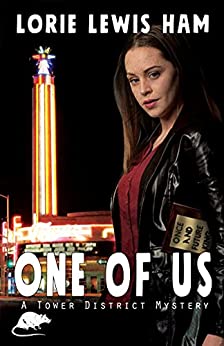I’ve written most of my life. I published my first poem and my first song at thirteen, and continued to publish poems, short stories, and articles through the years. I also worked off and on for our local newspaper and published my first mystery novel in 2000. Something I faced often in my life is people telling me I couldn’t write about a certain topic or in a certain way. They told me to play by the “rules.” Did I listen? Usually not.
Now I’m not talking about grammar and style rules—those are important, though even with those there are things that apply in educational writing or journalism that don’t always apply to writing fiction.
When I wrote my first mystery novel, Murder in Four Part Harmony, I managed to get an agent, and they sent it around to the big traditional publishers. Here’s what many of them said, “We like it, but this is obviously a Christian novel, and we don’t publish those.” The problem with that was that it wasn’t a Christian novel, it was simply a cozy mystery novel with a main character who was a gospel singer. Christian publishers wouldn’t have published it. I finally found a small publisher who would, thankfully. My point here is you could probably consider my first books crossover novels, which wasn’t much of a thing at the time. People wanted you to stay in a specific lane—mystery had to be only mystery, fantasy had to be fantasy, etc. Now though, they’re willing to share—romantic mysteries, for instance. Had I listened, those books never would have been published.
When I wrote the last book in that series, The Final Note, I included chapters from the first-person point of view of a character other than the main character. My editor told me at the time that I couldn’t do that. Again, you see that all the time now.
Another example I’ve seen, but not experienced personally, was that it used to be taboo to write novels in present tense. I personally can’t do it, it feels wrong, and it has taken me a while to adjust to reading books like that. But now it’s very common and accepted. I kind of blame Stephen King for that—he was one of the early ones to publish books written in present tense, and well, you don’t say no to Stephen King.
My most recent experience with this happened before I started my online magazine Kings River Life. I was on staff at the local newspaper of a small town and my editor kept telling me all of these things I couldn’t write about because no one would be interested: books, local theatre, pets. So when they laid me off a couple of years later, I decided to start an online magazine made up of all the things she told me no one wanted to read about! Well guess what, she was wrong! Here I am fourteen years later and still going strong.
These examples all come from my own lifetime—I haven’t researched it, but some of these things might have been considered okay before I was born, but then the rules changed. The rules are always changing. So if there is something you want to write, do it! There is a chance you won’t get it published or you won’t find a traditional market for it. But if it is well done and is something you know in your heart you want to write, don’t listen to the trends of the time—do it but do it well. Maybe it never will get published, or maybe it will and you will be ahead of the next trend. If you look at writing as the way you pay your bills, you may find yourself needing to play by the rules with most of your writing—but that doesn’t mean, on the side, you can’t follow your muse wherever it leads you.
Lorie Lewis Ham published seven mystery novels. Lorie is the editor-in-chief and publisher of Kings River Life Magazine and produces Mysteryrat’s Maze Podcast. You can hear an excerpt of her book One of Us, the first in a new series called The Tower District Mysteries. Book 2, One of You, is now available.


Thanks for having me!